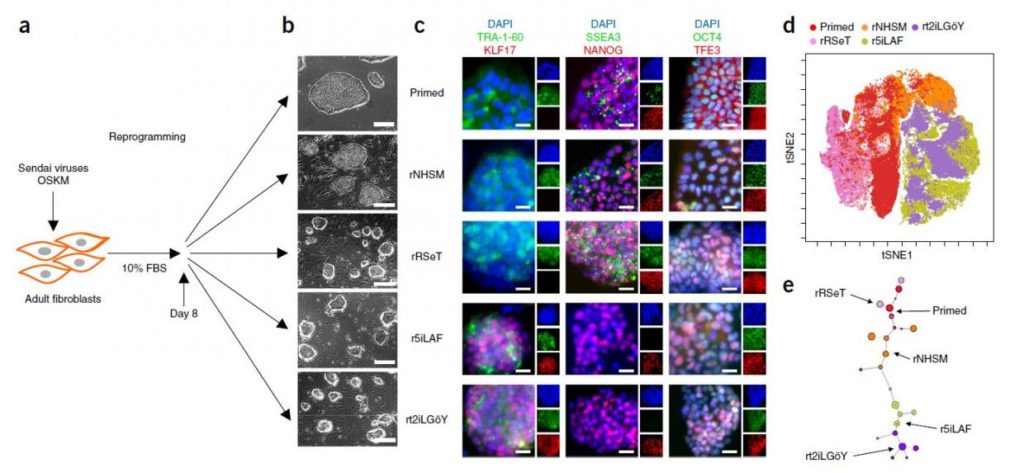New discoveries pave the way for improved understanding of stem cell research tools.
A newly published paper in the prominent science journal ‘Nature Methods’ revealed that human pluripotent stem cells have distinct functional and molecular features when generated through various methods. This discovery, realised by the Australian Regenerative Medicine Institutes (ARMI) Polo Group, offers a new comprehensive study in the field of stem cell research. The findings were led by PhD student Ethan Liu and senior Postdoc Christian Nefzger.
“This research underlines the importance of understanding the tools that are used in stem cell studies” stated ARMI group leader Associate Professor Jose Polo. Until now, stem cells derived using various methods encompassed a series of different characteristics. This impacts downstream applications in basic and clinical research. These disparities and difficulties had not yet been comprehensively studied until the research undertaken by the Polo group lessened the complexity in the field.
The study employed the use of several reprogramming methods and genomic studies. Stem cells generated displayed a distinct gene, DNA methylation and protein expression profiles. Other observations included those of growth rates, colony morphologies and varying levels of genomic stability and differentiation potential. “This work paves the way for the development of systems that generate stem cells which more closely resemble human stem cell populations for use in the lab and in clinical studies” stated Polo.
The findings discovered were a result of the cumulative effort between ARMI and a number of institutes including:
- Monash University Department of Anatomy and Developmental Biology
- Monash University Biomedicine Discovery Institute Development and Stem Cells Program
- Monash University Department of Biochemistry and Molecular Biology
- Monash University Bioinformatics Platform
- University of Western Australia
- Harry Perkins Institute of Medical Research
- Manufacturing, CSIRO
- Walter and Eliza Hall Institute of Medical Research
Associate Professor Jose Polo is a Chief Investigator at Stem Cells Australia.

Direct reprogramming of human fibroblasts into naive hiPSCs under different conditions. (a) Schematic overview for direct generation of different types of naive hiPSCs via somatic cell reprogramming using the Sendai viral system and indicated culture conditions. (b) Resulting colony morphologies (scale bars, 250 μm). (c) Immunofluorescence staining for pluripotency markers TRA-1-60, SSEA3, NANOG and OCT4 and naive-associated markers KLF17 and TFE3 (scale bars, 25 μm). (d,e) Multidimensional representation of flow cytometry data for primed and different types of naive hiPSCs by (d) viSNE map and (e) SPADE tree. Source: Nature Methods.
The Nature Methods paper is available online here.
For more information on Associate Professor Jose Polo and his group at ARMI please visit the Polo group page.
Contact information
Associate Professor Jose Polo
Group Leader, ARMI
Phone: +61 (03) 9905 0005
Email: jose.polo@monash.edu
Notes to Editors About ARMI
The Australian Regenerative Medicine Institute (ARMI) is dedicated to unlocking the regenerative capabilities of the human body. ARMI is a medical research centre based at the Clayton Campus of Monash University. Boasting 15 research groups studying a variety of regenerative approaches, ARMI is one of the largest regenerative medicine and stem cell research hubs in the world.
